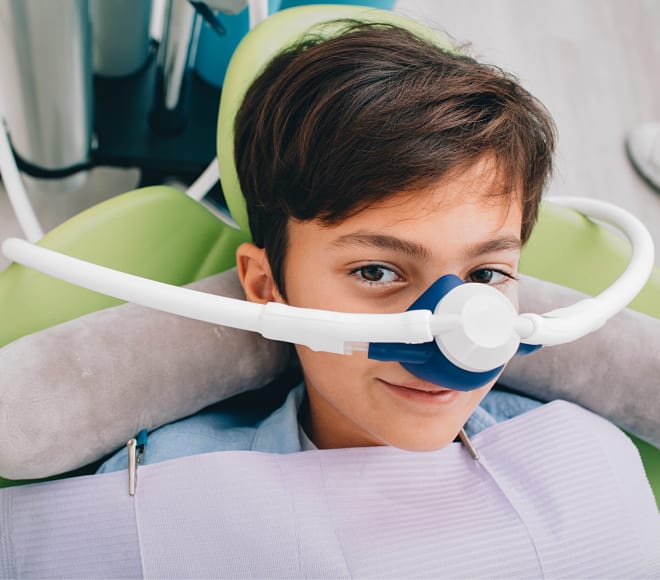Are you nervous about visiting the dentist? Let us help.
If you feel anxious or particularly nervous about visiting the dentist, you're not alone. Even patients who visit the dentist on a regular basis can suffer from dental anxiety.
What is Dental Sedation?
Sedation for dentistry is the use of techniques and medication to help ease patients' anxiety before, during and after dental treatment.
Our dental team often recommends sedation for patients who are highly nervous about dental procedures, or who need complex treatment, have time constraints or have a severe gag reflex.
Sedation Options
ORAL SEDATION Oral sedatives can be easily administered in the form of liquid or pills. These medications can be taken the night before your dental appointment to help you sleep, and/or one hour before your appointment to reduce anxiety leading up to and during treatment.
NITROUS OXIDE Nitrous Oxide, otherwise known as laughing gas, is an inhaled gas that can help to lower stress levels and anxious feelings. Since each person is different, the gas levels can easily be adjusted to your needs throughout your appointment.

Don't let dental anxiety prevent you from receiving the care you need and deserve!
If you experience anxiety about dental care, our dentists can help. InHarmony Dental Care offers safe and effective sedation options that can help you to feel more at ease during your next dental appointment.
Sedation helps patients relax while undergoing dental procedures. That means that you're more likely to get dental care when you need it – often resulting in better oral health outcomes!
Is Dental Sedation for You?
Our goal is to help you to feel relaxed and comfortable during each appointment at InHarmony Dental Care. Reducing your anxiety about dental treatment is an important part of reaching that goal.
If you experience any of the issues listed below, please speak to our team about dental sedation options to help you feel more comfortable:
- Fear of needles or pain
- High anxiety regarding dental treatment
- Difficulty getting numb with local anesthetic
- Sensitivity to sensory stimulation (touch, smells, sights and sounds)
- Very sensitive teeth
- Extensive dental treatment
- Complicated procedures
- Strong gag reflex
- TMJ issues - difficulty opening mouth
- Young child in need of treatment

